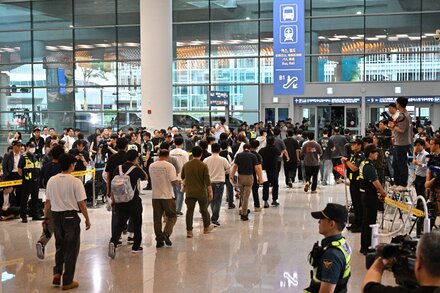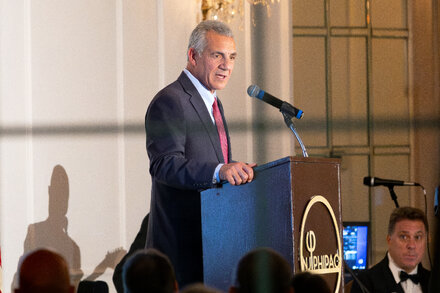The United States is easing visa restrictions for South Korean workers, a move primarily aimed at facilitating operations at a new South Korean-backed factory in Georgia. This decision underscores deepening economic ties and seeks to streamline foreign direct investments.

WASHINGTON D.C. – The United States has announced an easing of visa restrictions for South Korean workers, a move primarily aimed at facilitating operations at a new South Korean-backed factory in Georgia. The decision, effective October 1, 2025, underscores the deepening economic ties between the two nations and seeks to streamline the deployment of essential personnel for significant foreign direct investments.
The policy adjustment is expected to ease the process for skilled South Korean workers, managers, and specialized technicians required to operate and develop key industrial facilities within the U.S. While specific details of the relaxed criteria are still emerging, the changes are understood to address bottlenecks in existing visa programs, such as the E-2 non-immigrant treaty investor visa, which allows citizens of treaty countries to enter the U.S. for purposes of directing or developing the operations of an enterprise in which they have invested or are actively in the process of investing a substantial amount of capital.
Focus on Georgia Factory
The immediate impetus for this policy shift is reportedly linked to a major South Korean manufacturing facility in Georgia, which represents a substantial investment in the American economy and is expected to create thousands of jobs. The facility, likely in the electric vehicle battery or automotive sector, requires a contingent of specialized personnel from South Korea to oversee initial operations, transfer critical technical expertise, and ensure efficient startup.
“This strategic adjustment reflects our commitment to fostering robust economic partnerships and supporting foreign direct investment that creates jobs and drives innovation in the United States,” stated a U.S. State Department spokesperson, who preferred not to be named discussing internal policy deliberations. “By streamlining visa processes for our allies, we ensure that vital projects, like the one in Georgia, can proceed with the necessary skilled workforce, benefiting both our economies.”
Broader Economic Implications
Beyond the immediate needs of the Georgia factory, the easing of visa restrictions signifies a broader effort by the U.S. to enhance its attractiveness as a destination for foreign investment, particularly from key allies. South Korea has become a significant investor in various U.S. industries, including advanced manufacturing, semiconductors, and green energy, contributing to supply chain resilience and technological advancement.
The move is anticipated to be welcomed by South Korean corporations with substantial investments in the U.S., as it could reduce administrative burdens and accelerate project timelines. It also reinforces the strong bilateral alliance, extending cooperation from security and defense to critical economic sectors. Officials from both countries have frequently emphasized the importance of economic collaboration as a cornerstone of their comprehensive strategic partnership.
The long-term impact of these eased restrictions is expected to facilitate greater cross-border talent mobility, supporting the growth of advanced industries in the U.S. and further integrating the supply chains of both nations.
Source: Read the original article here.





